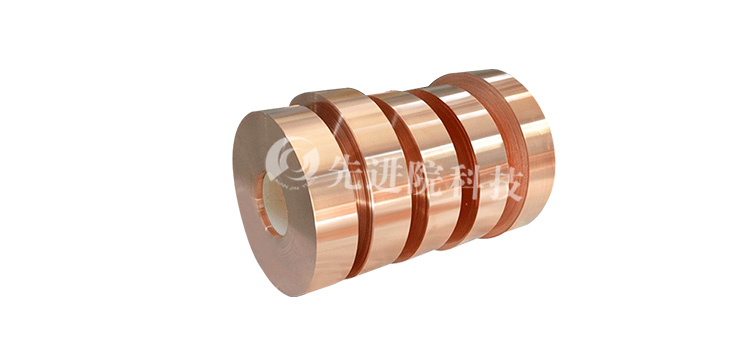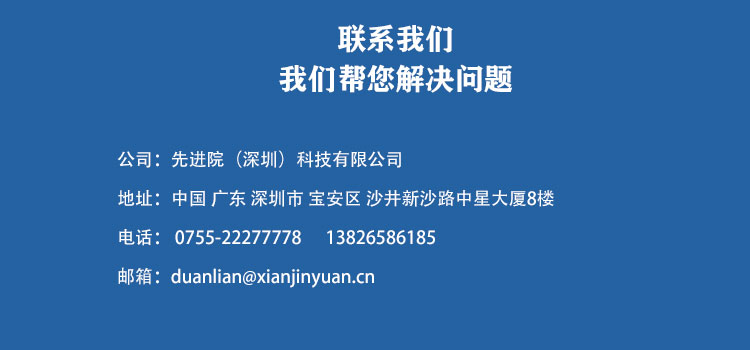

Hotline:0755-22277778
Tel:0755-22277778
Mobile:13826586185(Mr.Duan)
Fax:0755-22277776
E-mail:duanlian@xianjinyuan.cn
PEN copper plated film is a composite material in which a layer of copper is deposited on a polyethylene naphthalate (PEN) film. This material combines the excellent physical properties of PEN film with the conductivity of copper, demonstrating enormous potential for applications in high-performance flexible displays, flexible electronic devices, and other fields. However, in practical applications,PEN copper plated filmThe tensile strength has become an important performance indicator. This article will delve into the relationship between the tensile strength of PEN copper plated film and the copper layer, providing reference for research and application in related fields.
Tensile strength refers to the maximum stress value that a material can withstand during the stretching process, and is one of the important indicators for evaluating the mechanical properties of materials. For PEN copper plated film, its tensile strength is not only affected by the PEN substrate, but also closely related to the thickness, structure, and interface bonding between the copper layer and the two.
The thickness of the copper layer is one of the important factors affecting the tensile strength of PEN copper plating film. Generally speaking, as the thickness of the copper layer increases, the tensile strength of PEN copper plated film may show a trend of first increasing and then decreasing. This is because when the copper layer is thin, the interface bonding force between the copper layer and the PEN substrate is weak, which is prone to peeling during the stretching process, resulting in a decrease in tensile strength. When the thickness of the copper layer increases to a certain extent, the interfacial bonding force between the copper layer and the PEN substrate is enhanced, and the tensile strength also increases accordingly. However, when the thickness of the copper layer is too large, the defects and stress concentration inside the copper layer may become more severe, leading to a decrease in tensile strength.
The copper layer structure also has an impactPEN copper plated filmOne of the important factors of tensile strength. The grain size, orientation, and distribution inside the copper layer can affect its mechanical properties. For example, copper layers with small and evenly distributed grains usually have higher strength and toughness. In addition, the presence of defects such as cracks and holes in the copper layer can also affect its tensile strength. These defects are prone to become stress concentration points during the stretching process, leading to a decrease in tensile strength.
The interface bonding between PEN substrate and copper layer has a crucial impact on the tensile strength of PEN copper plated film. If the interface bonding is poor, the copper layer and PEN substrate are prone to peeling during the stretching process, resulting in a significant decrease in tensile strength. In order to improve the interfacial bonding strength, it is usually necessary to pre treat the PEN substrate, such as surface activation treatment, chemical copper plating, etc., to enhance its bonding strength with the copper layer.
By adjusting electroplating process parameters such as current density, electroplating time, etc., the thickness of the copper layer can be precisely controlled. On the premise of ensuring interface adhesion, choose an appropriate thickness of copper layer to improve the tensile strength of PEN copper plating film.
Advanced electroplating techniques such as pulse electroplating and ultrasonic electroplating can be used to prepare copper layers with fine and evenly distributed grains. In addition, by adding appropriate additives or adjusting the composition of the plating solution, the structural properties of the copper layer can also be improved, and its tensile strength can be enhanced.
Pre treatment of PEN substrate, such as surface activation treatment, plasma treatment, etc., can improve its surface roughness and wettability, thereby enhancing its bonding strength with the copper layer. At the same time, adopting advanced copper plating technology, such as the combination of chemical plating and electroplating, can further improve the interfacial adhesion and ensurePEN copper plated filmIt is not easy to peel off during the stretching process.
The tensile strength of PEN copper plated film is closely related to the thickness, structure, and interface bonding of the copper layer. By optimizing the thickness of the copper layer, improving the structure of the copper layer, and enhancing the interfacial bonding force, the tensile strength of PEN copper plated film can be effectively improved to meet its application needs in high-performance flexible display screens, flexible electronic devices, and other fields. In the future, with the continuous in-depth exploration of researchers and the continuous progress of technology, it is believed that the performance of PEN copper plating film will be further improved and expanded.
The above data is for reference only, and specific performance may vary due to production processes and product specifications.

Advanced Institute (Shenzhen) Technology Co., Ltd, © two thousand and twenty-onewww.leird.cn. All rights reservedGuangdong ICP No. 2021051947-1 © two thousand and twenty-onewww.xianjinyuan.cn. All rights reservedGuangdong ICP No. 2021051947-2